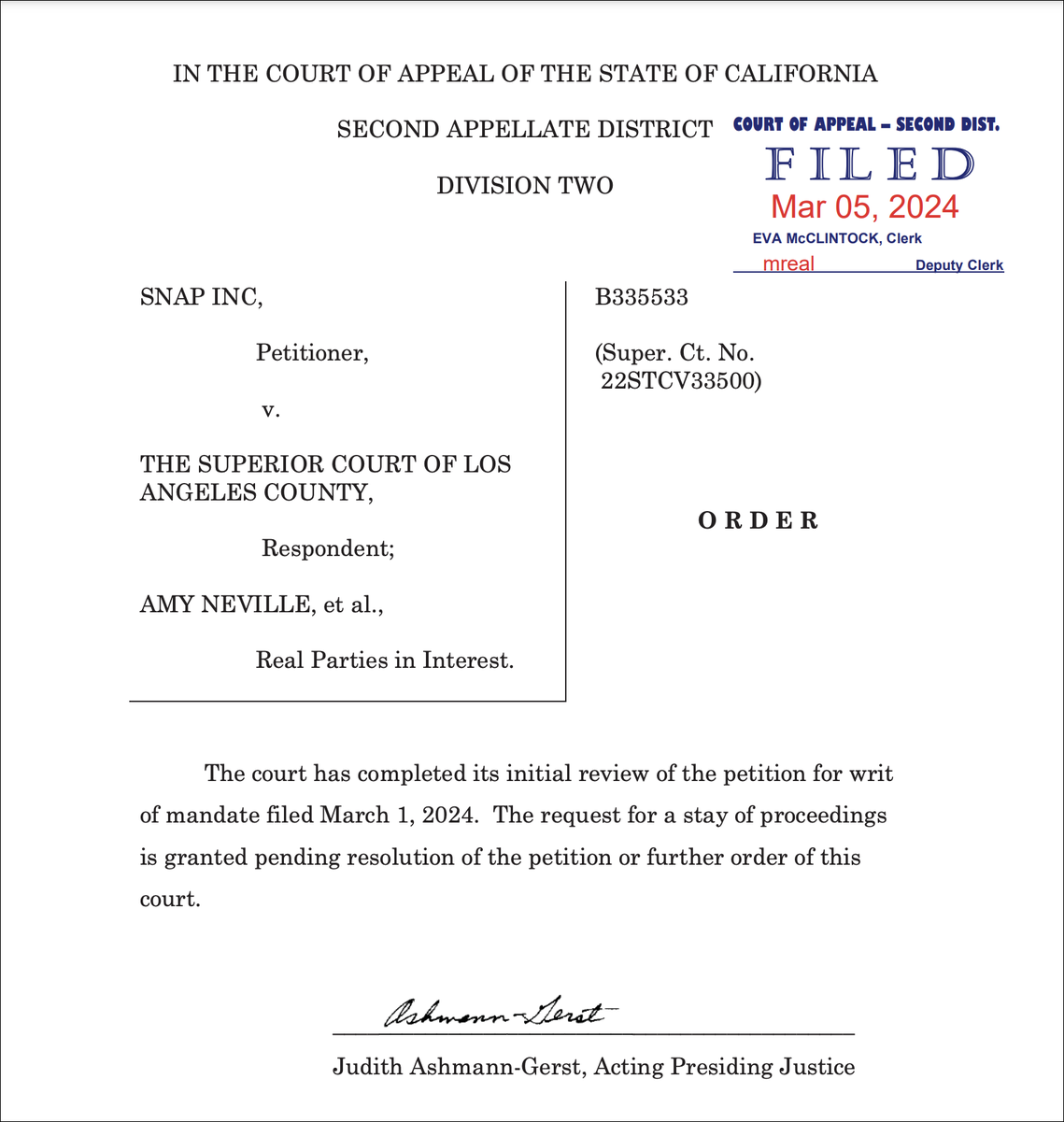
A California state court appellate
judge has temporarily halted a lawsuit against Snapchat by family members of minors who overdosed after purchasing fentanyl from connections made through the social platform.
In a two-sentence
order issued Tuesday, 2nd Appellate District Court of Appeal Judge Judith Ashmann-Gerst said she had reviewed Snapchat's petition and was granting the company a temporary stay.
The order comes
in a battle dating to last year, when a group of parents sued Snapchat over fentanyl sales. The parents claimed in a class-action complaint in Los Angeles Superior Court that Snapchat was liable
for several reasons -- including that its service was unreasonably defective due to design features like disappearing messages, which the parents said facilitate drug sales.
Snapchat urged
Superior Court Judge Lawrence Riff to dismiss the complaint at an early stage. The company argued it was protected by Section 230 of the Communications Decency Act -- which broadly immunizes web
companies over illegal content posted by users.
advertisement
advertisement
Riff rejected that argument last month, essentially holding that Section 230 doesn't protect interactive companies from liability over the
design of their services.
That ruling is contrary to numerous other decisions, according to internet law expert Eric Goldman, a professor at Santa Clara University.
“This
is what it looks like when a judge goes rogue,” said in a blog post about Riff's decision. “The judge
bypasses on-point precedent to embrace sketchy secondary sources.”
As recently as last month, a state court judge in Connecticut threw out a lawsuit brought on behalf of a teenage sex abuse victim who alleged
that Snapchat's recommendation algorithm put her in contact with two abusers. In that case, Superior Court Judge Barbara Bellis in Waterbury said Snap was protected by Section 230.
On Friday,
Snapchat filed an emergency appeal of Riff's ruling.
The company argued that the trial judge should have thrown out the case under Section 230 because the injuries in the case -- meaning the
fentanyl overdoses -- stemmed from posts by users.
“Section 230 bars plaintiffs from seeking to hold Snap liable for the content created and exchanged between the drug dealers and
plaintiffs’ relatives,” the platform's attorneys wrote.
“Snap did not create any drug-related content. Nor did Snapchat’s features contribute to the illegality of the
content the drug dealers created,” counsel added. “And Snap certainly did not sell Plaintiffs’ relatives drugs, lace those drugs with fentanyl, or encourage them to ingest those
drugs.”
The company added that services providers like itself are “immune from suit not only for displaying third-party content, but also for quintessential editorial decisions
like how to format and organize content and who can create and receive it.”
Santa Clara's Goldman this week filed a proposed friend-of-the-court brief siding with Snapchat. He argues to the appeals court that Section 230
was designed to facilitate speedy dismissals of lawsuits against web companies over third-party content.
“A significant consequence of stripping publishers of Section 230’s early
resolution of their claims ... is that defendants lose the ability to resolve these suits at a low cost,” he argues. “If Section 230 cases reach the discovery phase, publisher-defendants
would incur substantial additional costs, even if they ultimately prevail.”
He adds that online publishers could respond to the threat of such costs by either restricting users' ability
to post, or devoting resources to vetting posts in advance.
Either move would “substantially shrink the quantity of user-generated content on the Internet,” he writes.